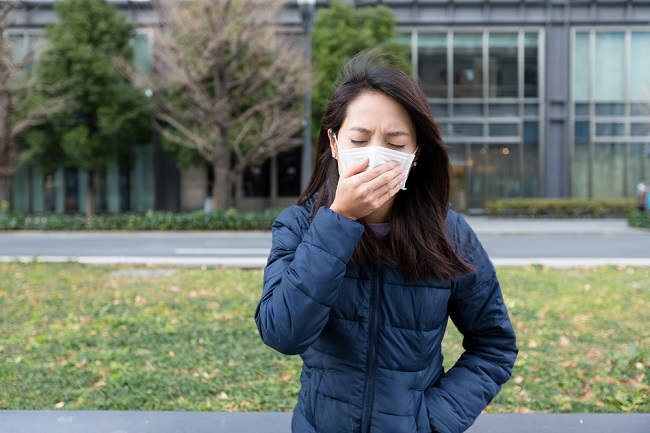Disease Groups That Can Increase Risk of COVID-19
COVID-19 can affect anyone regardless of age or gender. However, COVID-19 is known to be more at risk of attacking people with certain medical conditions. In this group, COVID-19 also tends to cause more severe complications and symptoms.
Not all people infected with the Corona virus will experience severe symptoms of COVID-19 in the form of shortness of breath, chest pain, and high fever. There are some people with COVID-19 who only experience mild symptoms such as flu. In fact, there are also those who have no symptoms at all even though COVID-19 is positive.

Based on information from WHO and the Ministry of Health of the Republic of Indonesia, severe symptoms and serious complications due to COVID-19 are more often experienced by the elderly and people with certain medical conditions, for example people suffering from chronic non-communicable diseases (PTM).
Why is PTM Vulnerable to COVID-19 Infection?
Non-communicable diseases are mostly chronic, which occurs slowly and can persist for long periods of time. Besides lasting a long time, chronic diseases can also cause the sufferer's health condition to decrease gradually, making it vulnerable to infection.
According to several studies, people who are infected with Corona virus and have chronic diseases are at higher risk for experiencing severe severe symptoms, such as those in the elderly.
This is because chronic diseases cause the sufferer's immune system to weaken and are more difficult to fight infection. As a result, the body of chronic disease sufferers will be more susceptible to diseases, including COVID-19 caused by Corona virus infection.
In addition, most chronic disease sufferers also already have organ damage. When attacked by the Corona virus, damage to these organs can become worse, so that the symptoms of COVID-19 that appear can also become more severe.
What Types of Non-Communicable Diseases Vulnerable to COVID-19?
There are many types of diseases that are included in the group of non-communicable diseases. However, there are several diseases that are known to have a high risk of causing COVID-19 with more severe symptoms, namely:
1. Chronic respiratory disorders
COVID-19 generally attacks the respiratory tract. Therefore, people who have chronic health problems in the respiratory tract, such as COPD and asthma, are at high risk of experiencing severe symptoms when infected with the Corona virus.
When contracting COVID-19, people with chronic respiratory distress will be more susceptible to severe respiratory disorders, such as asthma attacks, pneumonia, or even respiratory failure.
2. Cardiovascular Disease
Patients with cardiovascular disease, such as coronary heart disease, heart failure, stroke, and hypertension, generally have a poor heart condition and a weaker immune system. This makes sufferers of the disease vulnerable to COVID-19 with more severe symptoms.
Some reports also mention that the risk of death from COVID-19 in patients with cardiovascular disease is higher than previously healthy COVID-19 sufferers.
3. Diabetes
Diabetes that is not controlled over time can cause weak immune system and damage to various organs of the body. This is what makes diabetics more susceptible to COVID-19 and fatal complications due to Corona virus infection.
In addition, Corona virus infection also appears to increase the risk of dangerous complications from diabetes, such as diabetic ketoacidosis and sepsis. Various diabetes complications can increase the risk of death from COVID-19 in diabetics.4. Kidney disease
Corona virus infection attacks the respiratory tract the most, but this virus can also damage other organs, including the kidneys. Some reports have also mentioned that some sufferers of COVID-19 have experienced acute kidney failure, even though they have no history of kidney disease.
In addition, Corona virus infection is also known to be more at risk for people who have chronic kidney disease, routinely undergo dialysis procedures, or people who have had kidney transplant operations.
5. Cancer
Cancer patients belong to a group who are at high risk of being infected with Corona virus with severe symptoms and serious complications. This is because the immune system of cancer sufferers is not strong in fighting infection.
Weak immune system of cancer patients can be caused by various things, such as disorders of white blood cells and side effects of chemotherapy.
Besides some of the above diseases, COVID-19 is also more at risk of attacking sufferers of autoimmune diseases. This is because sufferers of the disease will generally get immune suppressive drugs, so that their immune systems are weak and vulnerable to infection.
What Should PTM Sufferers Do During the COVID-19 Pandemic?
Patients with non-communicable diseases above are advised to apply social distancing, which is now also called physical distancing, to reduce the risk of COVID-19. If you have to leave the house, limit the distance to others at least 1.5–2 meters and avoid crowds or crowded places.In addition, PTM sufferers also need to routinely consume medicines prescribed by doctors so that the disease can be controlled.
During this difficult time, PTM sufferers also need to continue to live a healthy lifestyle to strengthen their endurance. This can be done by consuming balanced nutritious food, diligently washing hands, reducing stress, exercising regularly at home, and avoiding cigarette smoke.
If you have a chronic disease that has been mentioned above and experience symptoms of fever, cough, or shortness of breath, especially if you have been in close contact with someone who is suffering from or suspected of having COVID-19, immediately contact the hospital or hotline COVID-19.
If you are still in doubt, you can check the risk of Corona virus infection or chat directly with the doctor on the Alodokter application. Through this application, you can also make an appointment with a doctor in the hospital.
Label : Health
Comments
Post a Comment